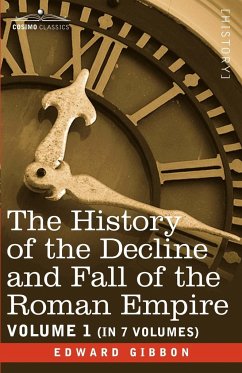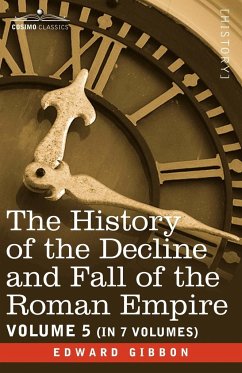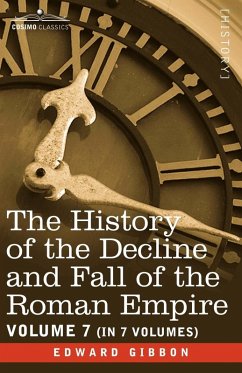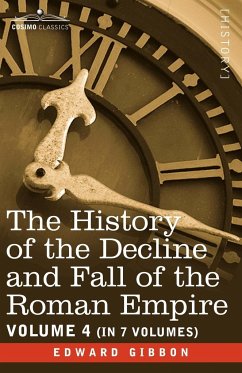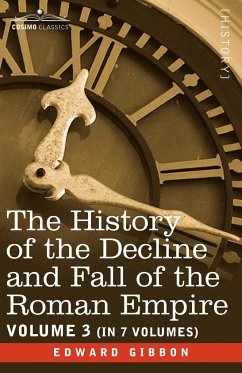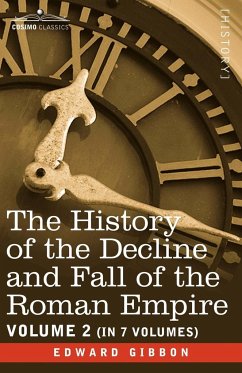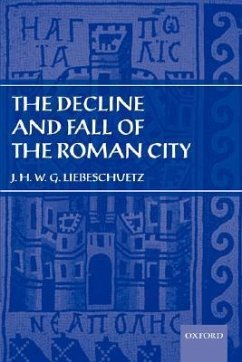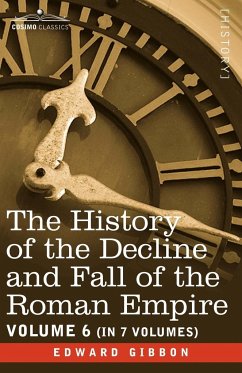
The History of the Decline and Fall of the Roman Empire, Vol. VI

PAYBACK Punkte
15 °P sammeln!
The History of the Decline and Fall of the Roman Empire is Edward Gibbon's magnum opus, written and published over a 13-year period beginning in 1776. It not only chronicles the events of the downfall starting with the end of the rule of Marcus Aurelius, but proposes a theory as to why Rome collapsed: the populace, Gibbon theorizes, lost its moral fortitude, its militaristic will, and its sense of civic duty. History is considered a classic in world literature, and Gibbon is sometimes called the first "modern historian" for his insistence upon using primary sources for his research. Many schol...
The History of the Decline and Fall of the Roman Empire is Edward Gibbon's magnum opus, written and published over a 13-year period beginning in 1776. It not only chronicles the events of the downfall starting with the end of the rule of Marcus Aurelius, but proposes a theory as to why Rome collapsed: the populace, Gibbon theorizes, lost its moral fortitude, its militaristic will, and its sense of civic duty. History is considered a classic in world literature, and Gibbon is sometimes called the first "modern historian" for his insistence upon using primary sources for his research. Many scholars today still use his highly regarded work as reference. In this sixth of seven volumes, readers will find Chapter 52 ("More Conquests by the Arabs") through Chapter 63 ("Civil Wars and the Ruin of the Greek Empire"), which cover the continued wars between Constantinople and the Arabs; the rise of Harun al Rashid; Islamic advances in the sciences; the invasion of Rome by the Saracens; the state of the Byzantine Empire in the 10th century; the rise of Greek power and influence in the Eastern Roman Empire; the Paulicans; the establishment of a Bulgarian kingdom; the origin of the Russian monarchy; the rise of the Normans in Italy; the life of Robert Guiscard; the many conquests of Sicily; the origin of the Seljuk Turks and their empire; the Turkish conquest of Jerusalem; the First, Second, and Third Crusades; the break between the Greeks and Latins in Constantinople; the rule of Emperor Baldwin I; the resurgence of Greek power in Constantinople; the origins of the family of Courtenay; and the establishment of the Greek Empire. English parliamentarian and historian EDWARD GIBBON (1737-1794) attended Magdelan College, Oxford for 14 months before his father sent him to Lausanne, Switzerland, where he continued his education. He published Essai sur l'Étude de la Littérature (1761) and other autobiographical works, including Mémoire Justificatif pour servir de Réponse à l'Exposé, etc. de la Cour de France (1779).



